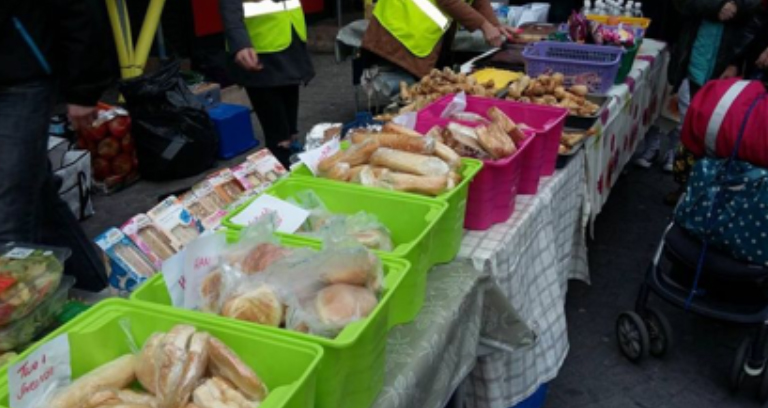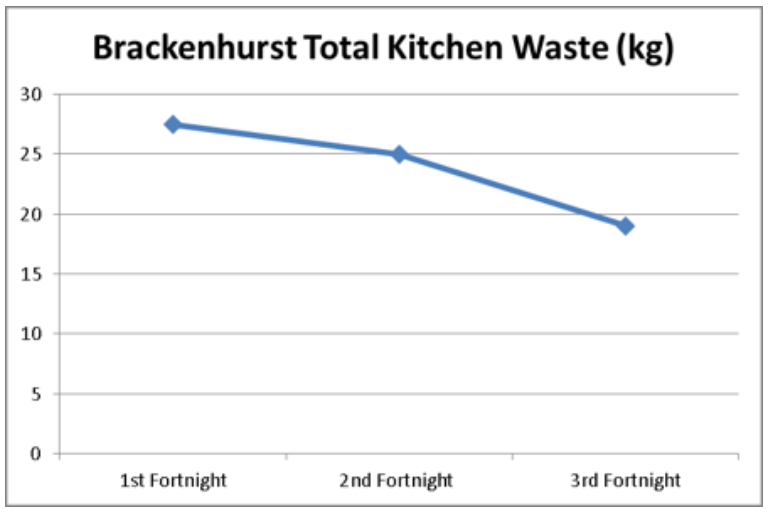Nottingham Trent University Catering Food Waste
18 Dec 2018
Every year in the UK approximately 10 million tonnes of food is wasted (a staggering one third of the total amount purchased). Generally, this goes to landfill where it produces methane which significantly contributes to climate change.
Nottingham Trent University (NTU) Catering recognises its role as a large service provider within NTU and the environmental impact it can have, particularly in regards to food waste.
Project
As part of the staff engagement ‘NUS Green Impact Scheme’, run through the Sustainable Development Team, an NTU Food Waste policy was created and circulated to all staff at the University. Each kitchen was asked to record their total preparation and spoilage waste on a weekly basis. This information was then shared with kitchen staff via posters displayed in kitchens to maintain interest and engagement with the project. Monitoring the food waste produced, allowed trends to be identified and an evaluation of procurement and the usage/portion sizes. Ultimately, this aims to reduce the amount of food waste leaving NTU, improve environmental performance and to identify cost savings.
Over the past 12 months, Catering Services have also:
- Donated over 2,000 unsold pre-packed sandwiches, salads and fruit pots to local charity ‘Tracy’s Street Kitchen’ for distribution amongst the homeless people of Nottingham
- Separated all unavoidable food waste as part of the department’s overall recycling programme, to ensure this is processed through an anaerobic digester to provide electricity and bio fertiliser
- Returned 285 drums of used oil to the supplier which converted into 5,700 litres of bio diesel for use in farms by supplier R-Oil.

Findings
Spoilage waste is highest on Fridays because the fridges are emptied of any perishables which wouldn’t last until the following Monday. The total kitchen waste statistics for the Brackenhurst campus, have shown a decline over the period of the study indicating that recording the statistics has already raised awareness amongst staff. Overall wastage for Brackenhurst reduced by 31% during a 6-week period.

Moving forward
- Reducing food waste is seen as a progressive project which continues to present opportunities for improvement.
- Staff will continue to record wastage over a further period to gather a more conclusive set of data.
- A review of the ordering process will be undertaken to ensure an excess of perishable products isn’t purchased.
- NTU will look at introducing a similar scheme for surplus hospitality food, which is returned to the kitchen for disposal. Despite the hospitality staff routinely reviewing orders and informing customers of appropriate portions, there still appears to be some over-ordering by academic and professional support staff.

